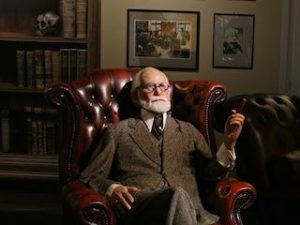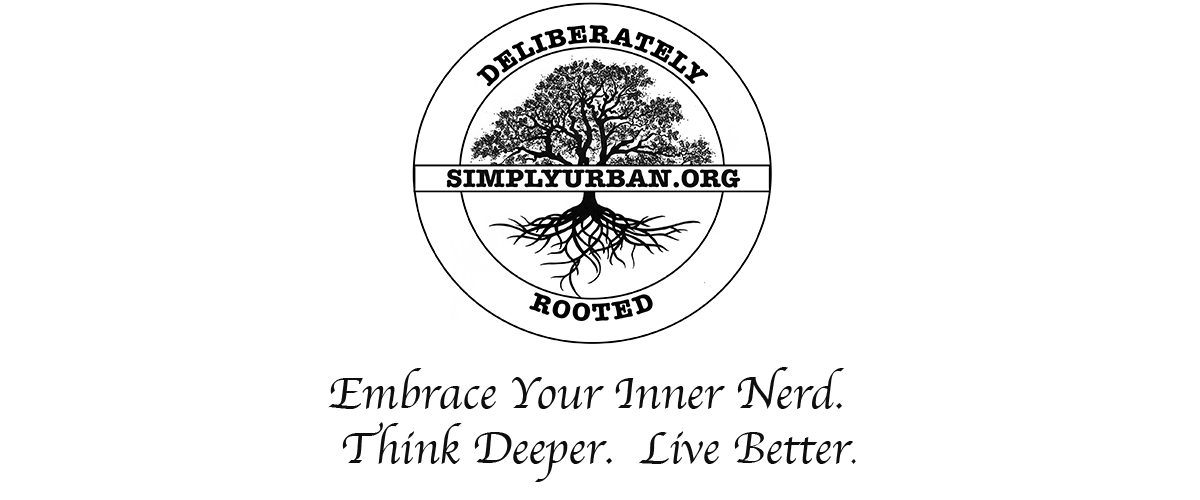This commentary on Civilization and Its Discontents discusses fundamental truths about the human condition. Considered one of the most important books in psychology, it’s a broad discussion of Sigmund Freud’s thinking from religion to human nature and from communism to prehistoric civilizations. I wanted to write a commentary on Civilization and Its Discontents to understand better the interaction of psychology with the way we organize our societies.
The title seemed to promise an explanation for some of our modern troubles. For some reason, we’ve seen increases in many measures of unhappiness. For example, the opioid epidemic has become the number one killer of people under 50. Sharp increases in suicide rates across the US signal our collective discontent. An outbreak of isolation and loneliness make it worse. Over half of Americans are lonely while two-fifths report a lack of meaningful relationships and isolation from others, according to recent surveys. Use of antidepressant drugs increased by over 400%, according to a Harvard Study. I analyzed what it takes to avoid these pitfalls in my essay, In Pursuit of Happiness. But, I wanted to examine Freud’s view on the causes for so many people’s unhappiness.
I expected a thoughtful discussion chronicling deep human insights. But, before I knew it I was scratching my head and wondering if I downloaded the wrong book. I was surprised to find Freud had some truly bizarre ideas. Then I remembered my college classes discussing Freudian Penis Envy, and it all made sense.
Freud’s Special Brand of Crazy
Although Freud does offer valuable insights, he starts out with his strange views on sex and religion. He surmises that early man took great pleasure in using his penis to pee on fires:
“gratify an infantile pleasure in respect of it and put [the community fire] out with a stream of urine.”
The aforesaid peeing on fires, according to Freud, went on to fundamentally shape civilization. He thinks this explains why homemaking became women’s traditional role:
“Further, it is as if man had placed woman by the hearth as the guardian of the fire he had taken captive, because her anatomy makes it impossible for her to yield to such a temptation [without a penis women can’t pee on fires]. It is remarkable how regularly analytic findings testify to the close connection between the ideas of ambition, fire, and urethral erotism.”
Hahaha, freakin’ hilarious and absurd! But, let’s get on with the commentary on Civilization and Its Discontents
Scorn for Religion
Freud scorns religion at the beginning of the book by setting up a Straw Man idea of religion then ridiculing his mistaken notions. He puts forward a debate with his fellow atheist, Romain Roland, where he argues the only justification for religion is an ‘oceanic feeling.’ Gur Hirshberg, in his article from Philosophy Now, summarizes it below:
Religion is, for Freud, the most contemptible aspect of man’s mental life. […] Freud tells us that his friend, the poet Romain Roland, locates the source of religion in ‘oceanic’ feeling: “One may, [Roland] thinks, rightly call oneself religious on the ground of this oceanic feeling alone, even if one rejects every belief and every illusion.”
It does not require the sensibilities of a religious fanatic to find something comic in an atheist poet’s attempt to explain ‘religious feeling’ to an atheist scientist. If, as the traditional understanding of religion has it, the essence of religion is belief in God, then contrary to Roland, it is not sufficient to experience oceanic feeling in order to ‘rightly call oneself religious’: one must also have faith.
Despite Freud’s strange obsession with penises and religious scorn, he eventually gets to some important insights.
Respect Despite the Crazy
Although some of Freud’s ideas seem absurd today, we should give him some credit for pioneering psychology. Developing a new field of thought takes courage and hard work in establishing foundational principles as a guide for future thinkers.

We stand on the shoulders of giants in most areas of thought. Our sophistication in established fields like science and ethics is built upon the framework of centuries of toil by brilliant thinkers like Pythagoras, Aristotle, Euclid, Newton, etc. We shouldn’t pat ourselves on the back too hard when we come up with a new refinement based on the thinking of these giants.
Freud’s legacy is unquestioned. Although much of his work is outdated, he’s considered by many as the father of psychology. Civilization and Its Discontents is still considered an important work and read by most psychology majors today.
We should understand the man in the context of his times. Although his strange ideas about penises seem absurd to us today, they probably made more sense in the stifling Victorian era of his day. Freud strikes me as an earnest, authentic seeker for truth. He often humbly admits the limitations of his thinking and identifies possible errors. In discussing happiness and the topic of his 1920’s book, Beyond the Pleasure Principle, Freud says:
“In spite of the incompleteness of these considerations, I will venture on a few remarks in conclusion of this discussion. The goal towards which the pleasure-principle impels us – of becoming happy – is not attainable; yet we may not – nay, cannot – give up the effort to come nearer to realization of it by some means or other.”
Love and Necessity
I didn’t find an explanation for the increase in society’s unhappiness. But, I came to understand some of the instinctual drives that fuel civilizations. I want to focus the rest of this commentary on Civilization and Its Discontents on powerful psychological drives and their interaction within societies.
Necessity
Freud discusses a thought experiment theorizing how civilization formed. He uses this thought experiment to understand civilization’s dynamics in psychology. At some point in prehistory, people discovered the value of working together. As the cliche goes, two heads are better than one, it takes a village to raise a child, etc. Hunting together allowed a tribe to kill large animals that no one person could alone. For instance, one group could chase a woolly mammoth to a predetermined trap or ambush, where the other group would kill the giant. Early forms of co-operation started in small extended family groups. In addition to the benefits of cooperative work arrangements, these small family groups also satisfied safety and sexual needs.
Love
The need to cooperate along with love bound primitive societies together. The love a couple feels for each other, and their children served as a powerful uniting force. This idea extended to other siblings and cousins forming larger tribes of extended families. Freud underscores the power of love when strengthened by sexual bonds. This power only gets stronger when contrasted with the prospect of losing it. The risks and dangers of the outside world increased the social force of love. Losing a tribe member not only resulted in a real diminishment of the tribe from loss of skill and work but, also created an emotional crisis felt by anyone losing a loved one. In the event of a lover’s death, one also loses an important sexual outlet.
“Genital love leads to the forming of new families; aim- inhibited love to friendships, which are valuable culturally because they do not entail many of the limitations of genital love – for instance, its exclusiveness. But the interrelations between love and culture lose their simplicity as development proceeds. On the one hand, love opposes the interests of culture; on the other, culture menaces love with grievous restrictions.”
This civic spirit strains an individual by denying his own instinctual desires which he must sacrifice for the greater good. Societies establish rules and taboos prohibiting otherwise desirable actions. For example, the communal spirit forbids things like sleeping with your brother’s wife or eating his mammoth burger.

The Conflict of Instinct and Civilization
Freud discusses this conflict between rules needed for civilization and instinct. He names these instinctual urges Libido and calls the imposition placed on Libido Culture. He sets the Golden Rule, “love your neighbor as yourself,” up as an ideal standard of civilization. But these standards of civilization create great difficulty as he explains below:
“I find still further difficulties. Not merely is this stranger on the whole not worthy of love, but, to be honest, I must confess he has more claim to my hostility, even to my hatred. He does not seem to have the least trace of love for me, does not show me the slightest consideration. If it will do him any good, he has no hesitation in injuring me, never even asking himself whether the amount of advantage he gains by it bears any proportion to the amount of wrong done to me.
What is more, he does not even need to get an advantage from it; if he can merely get a little pleasure out of it, he thinks nothing of jeering at me, insulting me, slandering me, showing his power over me; and the more secure he feels himself, or the more helpless I am, with so much more certainty can I expect this behaviour from him towards me.”
Perhaps that explains the social media mob’s anger and vitriol that’s unfortunately become all too common.
Humanities Darker Impulses
People are not gentle, friendly creatures who act in fairness and kindness toward one another. We’re not gentle beings who only resort to violence in self-defense when attacked. History has shown, people are highly aggressive animals eager to exploit others. He continues:
“The existence of this tendency to aggression which we can detect in ourselves and rightly presume to be present in others is the factor that disturbs our relations with our neighbours and makes it necessary for culture to institute its high demands. Civilized society is perpetually menaced with disintegration through this primary hostility of men towards one another. Their interests in their common work would not hold them together; the passions of instinct are stronger than reasoned interests. Culture has to call up every possible reinforcement in order to erect barriers against the aggressive instincts of men and hold their manifestations in check by reaction-formations in men’s minds. […]
“The time comes when every one of us has to abandon the illusory anticipations with which in our youth we regarded our fellow-men, and when we realize how much hardship and suffering we have been caused in life through their ill-will. It would be unfair, however, to reproach culture with trying to eliminate all disputes and competition from human concerns. These things are undoubtedly indispensable; but opposition is not necessarily enmity, only it may be misused to make an opening for it.”
Nothing is farther from human nature than the Golden Rule’s Ideal of “Love your neighbor as yourself.” But, the very existence of civilization depends on our striving for such ideals and the subsequent suppression of aggressive animal natures.
Dangers of Illusionary Views on Human Nature
Freud continues in this dark vein to predict Communism’s failure.
“The Communists believe they have found a way of delivering us from this evil. Man is whole-heartedly good and friendly to his neighbour, they say, but the system of private property has corrupted his nature. […] If private property were abolished, all valuables held in common and all allowed to share in the enjoyment of them, ill-will and enmity would disappear from among men. Since all needs would be satisfied, none would have any reason to regard another as an enemy; all would willingly undertake the work which is necessary. [… I] recognize that psychologically it is founded on an untenable illusion.
By abolishing private property one deprives the human love of aggression of one of its instruments, a strong one undoubtedly, but assuredly not the strongest. It in no way alters the individual differences in power and influence which are turned by aggressiveness to its own use, nor does it change the nature of the instinct in any way. This instinct did not arise as the result of property; it reigned almost supreme in primitive times when possessions were
still extremely scanty; it shows itself already in the nursery when possessions have hardly grown”
Freud’s warning, delivered during the 1920’s, Communism’s most optimistic time, is eerily prescient. As we know, Communism resulted in a system where individual rights were of so little importance that they allowed the most mass killings in history.
Final Commentary on Civilization and Its Discontents
Freud’s emphasis on how instinctual drives distort and influence our societies changes the way we view ourselves. The lessons of history and Freud’s theories are clear. We’re capable of creating amazing works of art and designing marvelous technology. But, as Communism and Nazism have shown, we’re also capable of madness and cruelty. We cannot view ourselves as only kind, loving, rational, fact-finding men and women. We must also acknowledge our darker impulses along with the good. The human mind has evolved to function in a certain way and operates within specific parameters and aspects of our civilization such as individual rights, religion, and the Golden Rule counteract and limit these darker impulses in ways that aren’t entirely understood.
A large part of the structure of our civilization involves compensatory mechanisms for poorly understood aspects of our brain functions. Interestingly, this article from Forbes further outlines some of the unexpected ways our minds work. Ignorance of these realities of the human mind can result in disaster when we remove or tamper with these mechanisms as seen in the Communist States.
What do you think?
Thanks for reading to the end! This blog is my project in the pursuit of truth. I spend dozens of hours researching each blog post, so I hope you found something useful.
Our click-bait culture needs good ideas in an increasingly complex world. That depends on good men and women engaging in intellectually honest discussions, sharing ideas, and challenging each other’s thinking. Writing out my thoughts in detail, along with lots of research, helps me arrive at a more accurate view of truth based on well-documented facts.
If you’d like to support my blog please buy my book. Here’s the link!





Leave a Reply
Your email is safe with us.